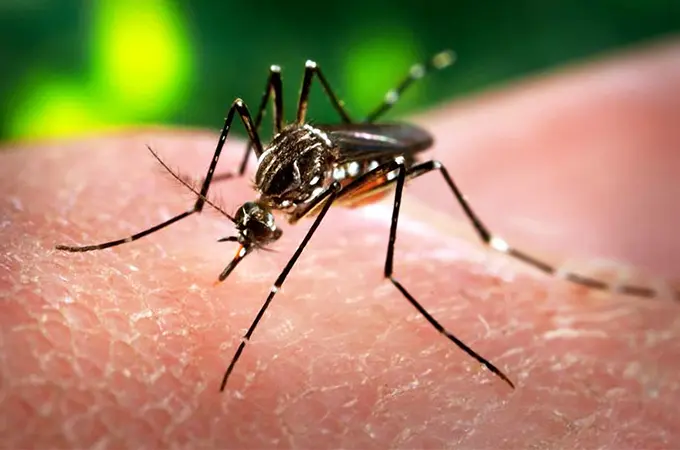Zika virus is a potentially important issue for those individuals who are pregnant or who are considering getting pregnant as infection with the virus has been associated with birth defects and poor pregnancy outcomes.
The American Society for Reproductive Medicine (ASRM) urges patients who are pregnant and who are considering becoming pregnant to exercise caution in avoiding exposure to Zika virus. Zika virus can be transmitted through mosquito bites from infected mosquitoes, and has also been reported to be transmitted through sexual activity, blood transfusions, and reproductive tissues.
The Centers for Disease Control and Prevention (CDC) has issued a travel alert urging those pregnant or seeking to become pregnant and their sexual partners to avoid travel to those areas with known outbreaks or use enhanced prevention and follow-up if travel cannot be avoided.
Latest Guidelines for Patients and Partners Concerned with Zika and Reproduction
Information on the Zika virus continues to change and evolve. The Centers for Disease Control and Prevention (CDC) and the American Society for Reproductive Medicine (ASRM) issued guidance for patients and partners concerned about Zika’s impact on reproduction. Countries and territories with active Zika virus transmission extend over many countries in the Americas (Mexico, Central and South America), the islands in the Caribbean including Puerto Rico, the Oceania/Pacific Islands, and Cape Verde in Africa.
Updated Map of Zika-Affected Countries and Territories
Recommendations for Women Who Are Trying to Conceive
The Shady Grove Fertility medical team supports the CDC guidelines urging those pregnant or seeking to become pregnant and their sexual partners to avoid travel to those areas with known outbreaks. If you are planning a pregnancy and have traveled to a Zika-affected area, or must travel to a Zika-affected area in the future, please discuss the following recommendations with your medical team:
- Women who have Zika virus disease should wait at least 8 weeks after symptom onset to attempt pregnancy; men with Zika virus disease should wait at least 6 months after symptom onset to attempt pregnancy.
- Women and men with possible exposure to Zika virus but without clinical illness consistent with Zika virus disease should wait at least 8 weeks after the last date of exposure before attempting pregnancy.
- Women and men who reside in areas of active Zika virus transmission should talk with their health care providers before attempting pregnancy, review the use of contraceptive methods to prevent unintended pregnancy, and discuss how to avoid exposure to mosquito bites.
Read the CDC’s Guide to Avoiding Mosquito Bites
Testing for the Zika Virus
Testing for the Zika virus has been complicated. Testing is not universally available for use and its cost is not universally covered by insurance. Routine testing is not currently recommended or available for women or men attempting pregnancy who have possible exposure to the Zika virus but have no symptoms or illness.
Pregnant women with possible exposure to Zika, with or without symptoms, may be able to obtain screening for the infection. Each state varies on the testing procedure and most start with the need to obtain approval from the state or local department of health. Currently, semen testing for the presence of infectious Zika virus is not recommended, as a reliable and valid test has not been developed. Please discuss questions about testing with your medical team.
What are the concerns with Zika virus in pregnancy?
The Zika virus infection in pregnancy has been associated with congenital microcephaly, a condition in which the head and brain are small and underdeveloped. Such brain damage may lead to mild to severe disabilities that are lifelong and irreversible. In some cases it can be life threatening. Common sequelae include seizures, developmental delay (affecting balance, sitting, walking, and movement), mental and intellectual disability, feeding problems, loss of hearing and vision, and control of vital body functions.
What is Zika virus and how is it transmitted
- Zika virus is transmitted to humans through infected mosquitoes (the same type of mosquito responsible for the spread of dengue and chikungunya viruses).
- Infected mosquitoes transmit the virus to people through bites. These mosquitoes are aggressive daytime biters, prefer to bite people, and live indoors and outdoors near people.
- Anyone traveling to, or living in areas where transmission has been reported, is at risk of becoming infected.
- When a person is infected with Zika virus, it is found in the blood during the first week of becoming infected.
- It can spread from person to person through mosquito bites.
- Currently, there are no medications or vaccines that can prevent the Zika virus.
What are the symptoms of the Zika virus?
- According to the CDC, about one in five infected individuals (or 20 percent) will become sick (develop symptoms). The incubation period (from time of exposure to symptoms) is likely to be 2 to 7 days.
- Common symptoms include: fever, rash, joint pain, conjunctivitis (red, inflamed eyes), muscle pain, and headache. The symptoms are very similar to dengue fever and chikungunya virus.
- Zika virus illness is usually mild and the symptoms may only last from a few days to a week.
- Hospitalizations and deaths are rare.
Precautions of Spreading Zika Virus through Sexual Contact
- The CDC has identified Zika virus transmission to non-infected persons as a result of sexual intercourse with a person infected with Zika virus.
- The CDC has recommended the use of condoms by partners who have returned from an area where transmission of the Zika virus has been reported.
What to Do if You Experience Symptoms or are Traveling to an Affected Area
- If you experience any of the symptoms noted above AND have recently traveled to one of the countries on the CDC travel advisory list, please consult your doctor immediately.
- If you are considering travel to one of the affected areas in the near future, please discuss prevention strategies with your doctor. You are advised to practice “enhanced precautions” to avoid mosquito bites, which includes wearing long sleeves and pants, using insect repellents (DEET), using air conditioning or window and door screens, and using bed net sprayed with permethrin (insect repellent). When used as directed on the product label, insect repellents containing DEET, pi9caridin, and IR3535 are safe for pregnant women.
For More Information
For the most current information, please visit the CDC website and click on the Zika virus heading. Please also be sure to talk with your SGF medical team about any questions or concerns you may have about the Zika virus.
There are additional, specific guidelines for patients pursuing fertility treatment using donated sperm, oocytes (eggs), and embryos. Please contact your medical team for questions about these guidelines.
Medical contribution by Lauren Roth, M.D.
Lauren Roth, M.D., is the Medical Director of SGF, and board certified in obstetrics and gynecology and reproductive endocrinology and infertility. She has published research on a range of fertility topics including polycystic ovary syndrome (PCOS) and the impact of weight on reproductive hormones. Dr. Roth sees patients in SGF’s Rockville, Maryland office.
Editor’s Note: This post was originally published in February 2016 and has been updated for accuracy and comprehensiveness as of July 2022.







